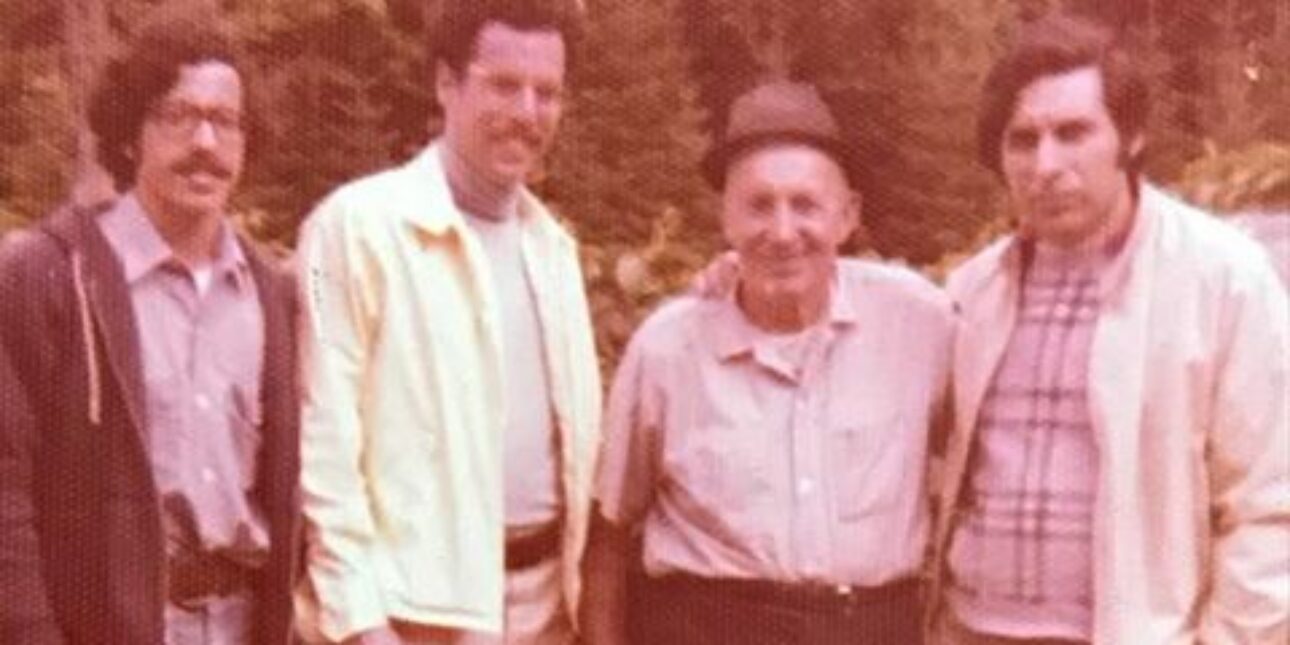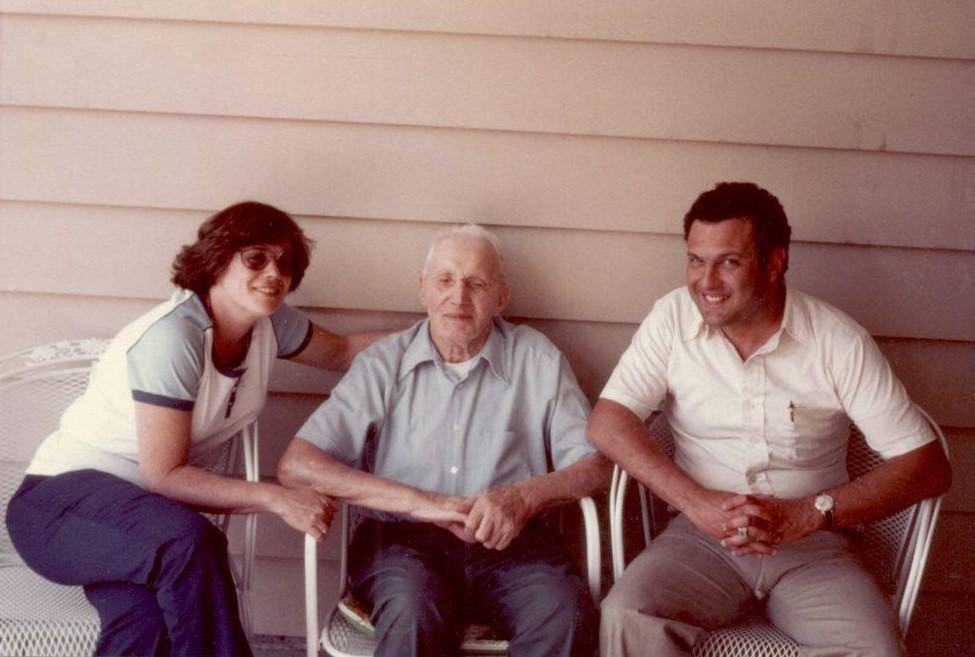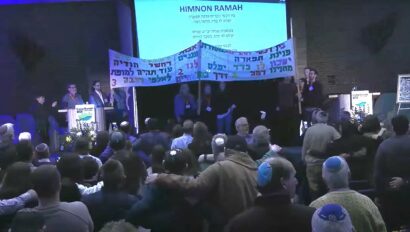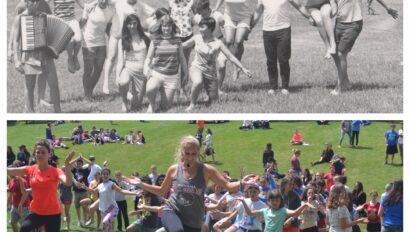
Herman Luttkus worked as groundskeeper for many years, beginning in Ramah’s first summer in 1947. In 2018 his grandchildren found the photo above among his belongings after he passed away. (From left: Mickey Friedson, Rabbi David Soloff, Herman Luttkus and Rabbi Burton Cohen in 1975.) They sent the photo to our office and asked if we had any information to share about Herman’s years working at camp. Ramah Board Member Donald Newman replied with this letter.
Hi Sandee and Kathryn:
From your recent contact with the Camp Ramah in Wisconsin office I am pleased to share with you some of my recollections of your grandpa, the one and only, Herman Luttkus.
I came on the Ramah scene in 1959, when I was 20 years old and had just finished my second year of college at the University of Illinois. I lived in Chicago at that time and now live in a suburb called Northbrook. Camp Ramah’s first season was 1948, so the camp was 10 years old when I became involved with it. I do not know when Herman began working at camp but he was already “on board” in 1959.
All of the things which I am telling you about Herman came from others, including Myrtle Christianson, a nice lady who also lived in Conover, knew Herman as a neighbor, and worked at Camp Ramah.
I understood that Herman came from Germany, although I am not sure I have that fact correct. He worked for the Chicago Northwestern Railroad which came through Conover along Route 45.
I have heard that in the camp’s very early days, before it even had electricity, Herman would maintain the wood fired hot water heaters which served the kitchen and showers as well as general clean up work.
In 1959, I recall him sweeping our large recreation building each morning, cleaning the public bathrooms and doing outside landscaping during other parts of the day. He would arrive in an old pick-up truck and always had a black lunch box with him. When he ate his lunch, it was always washed down with a bottle of Gentleman beer which I believe was brewed in Rhinelander, Wisconsin.

When I started working for the camp during the summer, I did maintenance work such as carpentry, plumbing, electrical, etc. Because I was majoring in Industrial Arts Education at the university, I received college credit for my work at the camp, which was nice. In 1964 I became camp Business Manager and was in charge of the entire operation, including the food service for some 350 campers and about 125 staff members. The educational aspects of the camp were under the auspices of the camp director which initially was Rabbi Burton Cohen (who was also an original camper in 1947) and later, Rabbi David Soloff. So, in 1964 and 1965, I was Herman’s supervisor. Or, perhaps more accurately stated, Herman was my supervisor. No one really told Herman what to do, he knew what had to be done and did it with immense pride. He was very self-motivated.
I truly believe he got the most satisfaction out of planting things and watching them grow. Everything he touched just sprouted and with his tender care grew big and tall. When the Bet Am, our large recreation building, was constructed in 1956, some 20 small evergreen trees were planted in a row in front of the building. I am told that Herman watered those evergreens by carrying buckets of water from Lake Buckatabon to nourish them, which eventually grew to be 15 or 20 feet high.
I know that Herman loved to play poker. During the camp season, some of the staff members would go to his house in the evening and play poker with him. I personally did not join them and can not tell you whether Herman won or lost.
Parts of the camp property are somewhat hilly. One particular area upon which a camper cabin sat, was prone to washout during heavy rains. At the end of each season, the camp would enter into a contract with Herman to do certain post-season work. One particular project which Herman suggested was to reinforce the hill by embedding rocks in the soil to prevent erosion. Herman gathered rocks in his pick-up truck from the sides of the surrounding county roads, brought them back to camp and painstakingly embedded hundreds of them into the sides of the hill. Grass grew in between the rocks. To this day, 50 years later, that hill is solid and upon close inspection, every single rock is still where his hands placed it. He built walkways in similar fashion.
I will finish by sharing with you the fact that every season, each of the 5 age divisions within the camp puts on a Broadway musical, which has been translated into Hebrew, with beautiful costuming and lighting for the entire camp to see. Each summer your grandpa and your grandma would be picked up at their house and brought to camp to see one of the musicals. Special chairs (not benches) were provided in the front row for them to enjoy the performance. Although they did not understand a word of what the campers were saying or singing, they loved the performances and the ice cream served afterward.
I hope that I have helped you in your quest for some Ramah related information about your grandpa, Herman Luttkus. He was truly a legend among the thousands of campers and staff who were fortunate enough to know him. He loved the camp, the campers and staff consisting of doctors, lawyers, rabbis, teachers etc. all appreciated and respected him.
You and your family were truly blessed to have him for as long as you did.
Best regards,
Donald Newman





